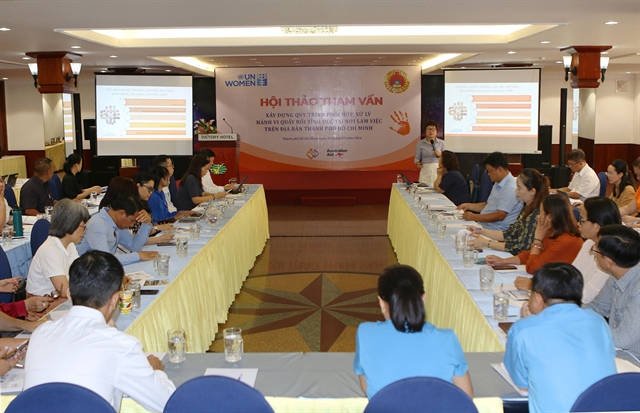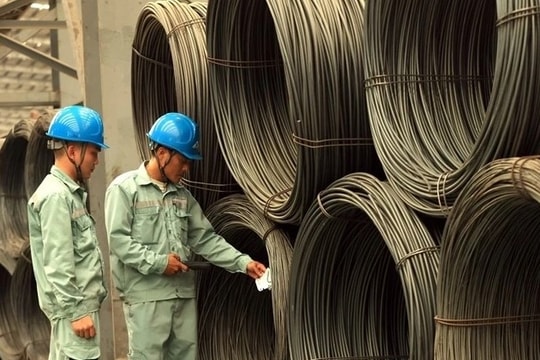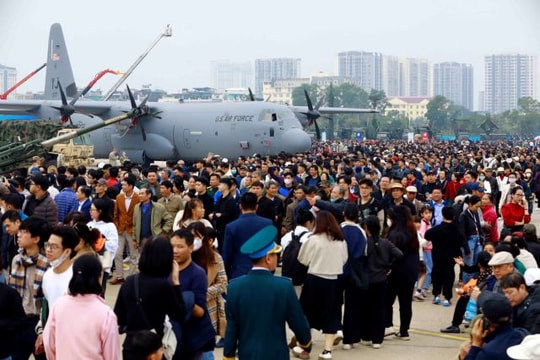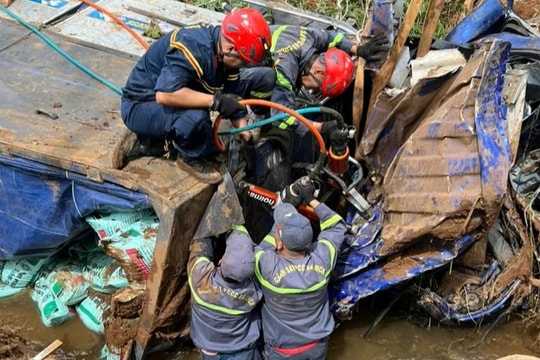HCM City confronts sexual harassment in workplace
HCM City is building a standard procedure for handling acts that are considered sexual harassment in the workplace.
 |
| A consultation workshop was held to discuss a draft standard procedure for handling sexual harassment in the workplace in HCM City on May 24. — VNA/VNS Photo Thanh Vũ |
HCM CITY — HCM City is building a standard procedure for handling acts that are considered sexual harassment in the workplace.
The city’s Department of Labour, Invalids and Social Affairs on May 24 in collaboration with the United Nations Entity for Gender Equality and the Empowerment of Women (UN Women) organised a consultation workshop to discuss the draft standard procedure for handling sexual harassment in the workplace in the city developed by UN Women.
Speaking at the workshop, UN Women representative Nguyễn Thị Diệu Hồng said the draft standard procedure for handling sexual harassment in the workplace will be implemented according to the principles of confidentiality and privacy for both complainant and complainee.
It also ensures that the person complaining of sexual harassment and anyone else involved will not face negative effects during the procedure process.
It is developed based on legal basis and practice.
According to the provisions of Article 118 of the 2019 Labour Code, every employer shall issue their own internal labour regulations. An employer that has at least 10 employees shall have written internal labour regulations.
Part of the content of the internal labour regulations is actions against sexual harassment in the workplace.
In addition, employer regulations on preventing and combating sexual harassment in the workplace in Article 85 of Decree 145/2020 detail and guide the implementation of a number of articles of the Labour Code regarding working conditions and industrial relations.
Hồng said the draft standard procedure for handling sexual harassment will be implemented through seven steps, including receiving complaints; resolving internal disputes through mediation if the case is ‘not very serious’; appointing a person to verify the case; conducting verification of the case; notifying the verification result; and disciplinary action and compensation.
Many experts and representatives of departments and agencies also agreed that it is necessary to develop a coordination process to handle sexual harassment complaints in the workplace.
When the victim of sexual harassment is unable to provide or collect evidence of sexual harassment to the police, it can result in an inability to request legal aid to protect their rights, they said.
This procedure is expected to extend the rights of victims to legal aid upon their request.
Nguyễn Hồng Hà, deputy head of the Division of Labour, Wages and Social Insurance under the city’s Department of Labour, War Invalids and Social Affairs, said enterprises need to clearly specify sexual harassment acts in their labour regulations.
If the sexual harassment act has criminal elements, the enterprise must transfer the case to competent authorities for handling, she said.
Nguyễn Bảo Khâm, a police officer, said it is true that in the current context, Việt Nam need to develop a standard procedure for handling sexual harassment in the workplace.
After the pilot implementation, adjustments could be made to suit the reality of society, he said.
Currently, if a sexual harassment complaint in the workplace is not resolved satisfactorily, the complaint can be filed with the police.
The ward and commune police will receive it first, and report to a higher authority in case of serious violations.
Nguyễn Tăng Minh, deputy director of the city’s Department of Labour, War Invalids and Social Affairs, said all comments and suggestions will be collected and researched to complete the draft standard procedure for handling sexual harassment in the workplace. — VNS























